Anxiety Disorder Treatment in Texas
Every person is born with the ability to feel anxiety, as a way to protect ourselves by being alert and aware. Anxiety, for most people, is a normal feeling that occurs when something goes wrong at home or when work pressures build up.
But for those that have an anxiety disorder, these feelings of fear and worry are out of proportion and do not go away after the perceived threat has passed. People affected by chronic stress and anxiety experience disproportionate fear every single day, with every situation they encounter. Anxiety can make it difficult for those affected to live their lives, since they are continually burdened with the stress and fear of what’s to come. Even happy moments come with a twinge of nervousness that something could go wrong. For people who struggle with anxiety, it often feels like too much to bear.
At Cypress Lake Recovery in Texas we see many patients with anxiety disorders enter our addiction recovery programs. These patients may not have ever been properly diagnosed or taught how to effectively manage their symptoms of anxiety. They may have turned to substance abuse in an effort to self-medicate their anxiety, but did not recognize that addiction would present its own obstacles. They may only want to perform daily activities without the burden of anxiety — we are here to help them find productive and healthy ways to accomplish this.

What is Anxiety?

Anxiety is defined as a mental health condition where the brain is trained to hyper-focus on any situation and create stress due to an obsession with future or potential problems. These problems don’t exist at the present moment and sometimes aren’t realistic, but those with anxiety will magnify normal situations. In many cases, this is a result of a past experience or incident (like abuse or trauma) that resulted in the person’s innate need to protect themselves becoming overactive. In other cases, it is simply due to a prolonged high-stress lifestyle. But there are many kinds of anxiety disorders that can take shape for different reasons. These include:
- Separation anxiety
- Illness anxiety/hypochondria
- Social anxiety
- Agoraphobia
- Personality disorder
- Generalized anxiety
- Post-traumatic stress disorder (PTSD)
- Conduct disorder
- Panic disorder
- Obsessive Compulsive Disorder (OCD)
Symptoms of Anxiety
The human body is not built to live in a constant state of stress. Stress is regulated by various hormones and neurotransmitters that cause increased heart rate, body tension, racing thoughts and panic. When the effects of anxiety are combined with substance abuse, they may become worse as a result of the heightened health risks and mental imbalance that happen as a result of addiction. Some common symptoms of anxiety include:
- Excessive worry
- Problems with cardiovascular and nervous system
- Poor eating
- Distress about making decisions and changing plans
- Panic
- Avoidance of interactions and things that make them uncomfortable
- Restlessness
- Raised blood pressure
- Chronic fatigue
- Headaches due to muscle tension
- Inability to relax
- Intense fear
- Feeling worn down
- Unhealthy sleeping habits
- Impaired immune system
- Discomfort in social situations
- Inability to maintain a healthy weight
- Chronic illness related to stress
- Trouble sleeping or insomnia
- Increased heart rate
- Digestion issues
Contact Our Admissions Team Today
For Family Members and Friends:
If you have a family member or friend dealing with stress and anxiety in a crippling way, it may be time to talk with them about getting help. Offer to help them with tasks, or offer to listen to them discuss their stress. They may truly appreciate you being there for them in their time of need.

Testimonials
![]()
![]()
![]()
![]()
![]()
Regina
I am so happy that I chose Cypress to begin my recovery. I have suffered for years from depression, anxiety, panic disorder, and PTSD. The programs that are offered here at Cypress have been truly phenomenal in helping me recover. I also appreciated the professional staff that are here on duty 24/7, which helps create a safe environment. Cypress Lake Recovery uses effective “one on one” methods that meet each person’s individual needs because they evaluate and have a better understanding of your personal traumatic experiences. Thanks Sabino, I am truly grateful to you and the Cypress family.
![]()
![]()
![]()
![]()
![]()
J.A.
A beautiful facility! Staff sets the tone and kindness that residents easily follow. Thank you, Cypress Lake Recovery!
![]()
![]()
![]()
![]()
![]()
Pamela
The program at Cypress Lake Recovery works! I emerged from an accumulation of unrecognized emotions, issues of trust, and unresolved grief and loss. 35-days of effective integration of customized quality therapy reconnected my mind, body, spirit, and I am worth it! I had masked emotions and hurtful events for decades with alcohol. At Cypress Lake Recovery I safely focused deep within to unleash harmful secrets and self-degradation. Tools of recovery were practiced, not just presented. Integrative therapies were tailored to my circumstances, thus were effective. This residential program is like no other. For me, Cypress Lake Recovery delivered what was professed. I am forever grateful for this gift of healing.
![]()
![]()
![]()
![]()
![]()
Mike
Life changing experience. Wonderful staff. Wonderful program. Thanks for everything!
![]()
![]()
![]()
![]()
![]()
Darcy
It was great to begin my recovery in a group environment with so many knowledgeable nurses, therapists, BHT’s, and others around for support. The equine therapy, challenge course, family week, and daily therapies all work together seamlessly, allowing me to leave Sabino as a healthier and stronger person!
Dual Diagnosis Therapy and Treatment
In our program, determining if a dual diagnosis is present is our first step after detox. Once a person has begun to recover physically, we begin finding the best way for the person to recover mentally. Our patients are diagnosed early, so we can better formulate specific plans with the right counselor, physician and integrative therapies. Anxiety is one of our most common dual diagnoses, and we are equipped to help people heal from anxiety and addiction simultaneously.
Relieving Anxiety Without Medication
Unfortunately, many modern medications for anxiety can be highly addictive even when they are used to treat a legitimate mental health disorder. For patients who have struggled with addiction in the past, using benzodiazepines or other prescription medication might be a dangerous decision.
At Cypress Lake Recovery, we try to focus on finding the best ways for people to manage your anxiety without needing to entirely rely on medication. Our treatment aims to help people pick up skills to cope with anxieties and stress, providing inner strength and confidence to help people feel better without the aid of addictive substances. During treatment at Cypress Lake Recovery, every person is given a thorough education on their mental health diagnosis and provided with advice to manage their lives in a healthy way without drugs and alcohol. We don’t simply offer treatments that mask the underlying causes of people’s concerns.
Our treatment and therapy options include many different modalities, such as art therapy, meditation, and writing therapy to help you build healthy coping mechanisms and establish important support systems. We know that every person’s struggle with addiction and anxiety will be different from the next, so we encourage people to explore what works for them and find skills and hobbies they can bring into sober life. We prepare our patients for situations to help reduce risk of relapse risk .
In addition to coping skills, we address the fact that addiction (and anxiety) can become worse with isolation and keeping the issue to oneself. It’s important to share feelings with a person’s support network, which can include friends, family and support groups. People often forget that others experience these same worries and fears.
We understand that it can be challenging for someone to admit that they’re dealing with addiction and anxiety. The stigma surrounding these conditions doesn’t help. But we are here for you. Individuals leave our program with an active set of support options, recommendations for 12-step programs, and lifestyle management skills to help make life-altering changes to improve their anxiety.
Nationally Recognized & Accredited
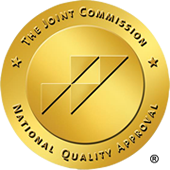
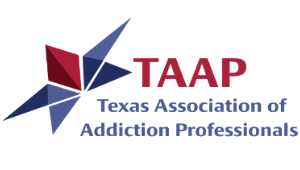
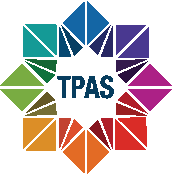
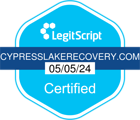
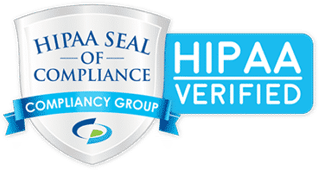

Substance Abuse and Anxiety
Addictive substances often develop as a way of self-medicating conditions like depression, anxiety, and any post-traumatic stress disorder. Some people think a drink here or there to “take the edge off” is okay. But that one drink here and there can become part of their daily routine, then become a (perceived) necessary action to get through the day.
The symptoms of any stress-related disorder (such as anxiety) are substantial and we understand that this often is where addiction often comes from. Long-term abuse of drugs and alcohol often leads to changes in brain chemistry that can result in paranoia, stress and worry. We work with individuals to heal their anxiety alongside their addiction.
Each specific anxiety disorder has a different set of triggers or fears, which is why they each require in-depth care and individualized therapy to properly diagnose. For example, over 20% of the people affected by social anxiety also suffer from alcohol addiction. At Cypress Lake Recovery, we ensure that members of our staff can work with patients who struggle with both anxiety and addiction. Our highly qualified doctors and therapists are trained to notice when patients seem to be suffering from a mental health disorder. Our programs are inclusive of people who need treatment for multiple concerns.
Contact Cypress Lake Recovery
Cypress Lake Recovery offers premier treatment for addiction, anxiety and other dual diagnoses in Woodville, Texas. If you think that you or your loved one might be a good fit for our programs, we encourage you to reach out to us as soon as you are ready. Contact us today to learn more about how we can help you overcome fear and worry in the presence of substance abuse. We know that you can live without drugs and alcohol while managing your anxiety with holistic methods, and we are ready to teach you how.



